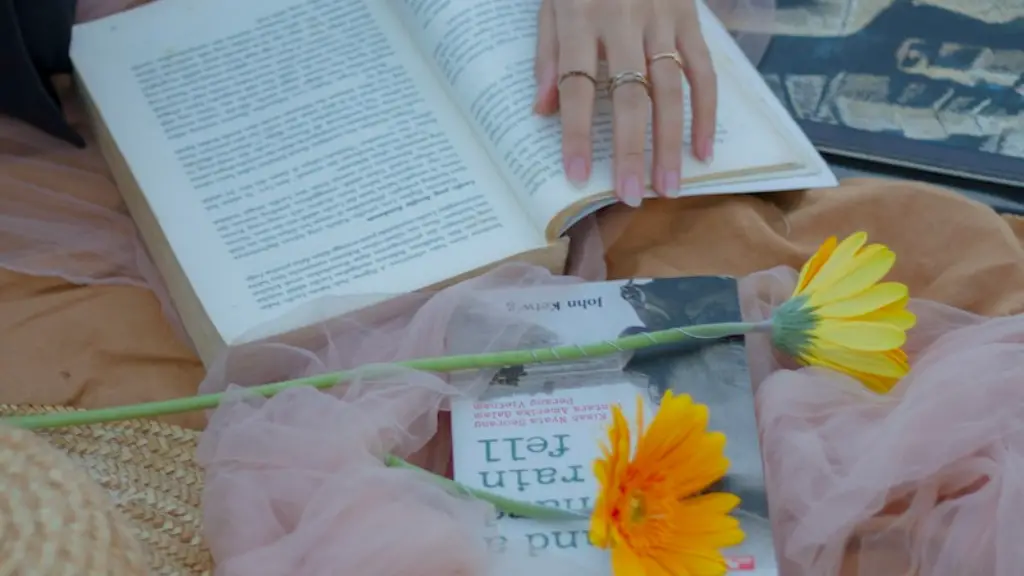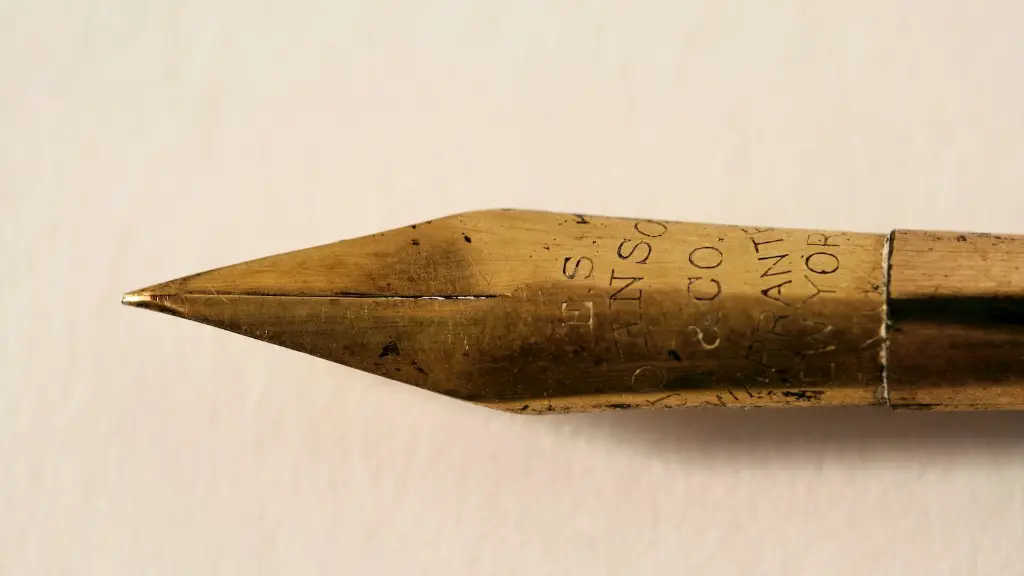Introduction
Poetry is a form of literature that expresses ideas and emotions in a creative, beautiful way. It has been around for thousands of years, with some of the earliest known forms of poetry appearing in ancient Sumerian and Egyptian cultures. Since then, poetry has been studied and admired all over the world, with many modern poets using their work to explore deep themes and convey powerful emotion. I have always been intrigued by the power and artistry of poetry, and through my studies I have come to appreciate the incredible skill and insight required to write great poetry.
Rhyme
One of the key components of most types of poetry is rhyme. Creating perfect rhymes requires an understanding of how words sound together, as well as a mastery of the language’s phonetic system. By using rhymes, poets are able to create both musical and poetic effects, often transforming a mundane poem into an artwork that is both aurally and visually pleasing. Few feelings can compare to discovering a perfect rhyme, and it is always a joyous act for me to string the words together to create a powerful, melodious effect.
Structure
Poetry generally does not follow a strict, rigid structure. Instead, it relies on creative freedom and the use of poetic devices such as metaphor, simile, alliteration, and repetition to structure the poem itself. Although poems can take on many forms and there is often no single “correct” structure for a poem, there are several standard forms and stylistic conventions that the poet can employ to strengthen the poem and keep the reader engaged. Some of the most popular forms include the sonnet, the haiku, and the limerick, although there are countless more that the poet can explore in their work.
Emotion
Perhaps what I find most fascinating about poetry is its ability to evoke powerful emotions out of stories and situations. Through careful word choice and clever use of imagery, poets can transport the reader to a different world, allowing them to experience the poem’s emotion firsthand. The right poem can bring about joy, sorrow, or create a feeling of wonder; the emotions evoked by poetry can be very powerful and can have lasting impact. I’ve often found, that when I can’t find the words to express a feeling, it can be easily expressed in a poem.
Analysis
Literary analysis is often a necessary part of appreciating poetry. It involves breaking the poem down into its components and examining the piece in detail to determine its deeper meaning and symbolism. Through this process, readers can gain a deeper understanding of a poem, its themes, and its intent. Literary analysis can be both technical, when it involves studying the structure and grammar of the poem, or it can be a more emotive experience, as the reader takes on the role of the poem’s protagonist and explores the emotions and turmoil conveyed in the work.
History
The history of poetry is a complex and interesting one, with many legends and stories of poets and their works. To gain an understanding of poetry, it’s important to look at the works of famous poets to understand the evolution of poetry and the development of the various forms we know today. Different cultures have their own forms of literature and poetry, and by studying these examples, it is possible to gain an appreciation for how different cultures view and express emotion, thereby giving unique insights into the development of poetry.
Comparisons
Comparing different forms of poetry can be an interesting and enlightening experience. By looking at how various forms of poetry use language and their specific conventions, it is possible to gain a better understanding of the unique nature of each form and the way in which they express emotion. Gothic poetry is different from the haiku, while a limerick is different from a sonnet. By examining the structure and feelings conveyed in each type, the reader can explore the differences and commonalities of the poetry forms and gain insights into the different ways in which writers address emotion.
Performance
Performance is becoming an ever more popular route for expressing poetry. Platforms such as YouTube, Instagram and other social media allow for poets to share their work in ways that go beyond the readership of traditional poetry. For many poets, performing their work is an opportunity to make a stronger connection with their audience, as their work is experienced firsthand by those watching. Watching a poet perform their work is an incredible way to experience the intricacies of their work and really appreciate the emotion behind it.
Adaptation
Just as literature can be adapted into films and plays, so too can poetry be adapted into an even wider variety of media. Music, visual art, and spoken word are just a few of the ways in which a poet can adapt their work to reach a wider audience than traditional literature allows. Adapting poetry can also bring great new meaning to the work, as the poet uses the unique language and conventions of the medium to convey their message. Adaptation is both an interesting and creative way for poets to express their craft.
Interpretation
The interpretation of a poem can be as varied as the people reading it. Although many poems are written with a specific interpretation in mind, the reader can often find multiple meanings within the poem, depending on their own personal experiences and understanding. Through interpretation, a poem can take on an entirely new meaning and is able to reach a wider audience in many unforeseen ways.
Inspiration
Inspiration is a critical part of writing poetry. In order to write a successful poem, the poet must find the right combination of ideas and emotions to convey the feeling they are aiming for. It can often be difficult to stay motivated and inspired, but there are many ways to stay inspired, including reading the works of other poets and writing down any ideas and stories that come to mind. When the right inspiration and motivation are found, poets can create beautiful, unique works of art.
Publication
Once a poet has crafted their masterpiece, the next step is to find a way to share it with the world. Poets often find success by publishing their works in magazines, books, and other outlets, allowing their words to be read and appreciated by others. Another option is to submit a poem to a contest, allowing the poet to win awards and recognition for their work. This can be a great way for aspiring poets to gain recognition and build their portfolio.
Conclusion
Writing poetry can be a rewarding and enriching experience. When done properly, it can be one of the most inspiring and meaningful experiences for writers and readers alike. Although poetry can be a difficult craft to master, it is a craft that is well worth the effort. With enough dedication and practice, any writer can become a great poet and produce beautiful, memorable works.



